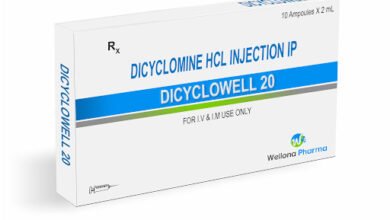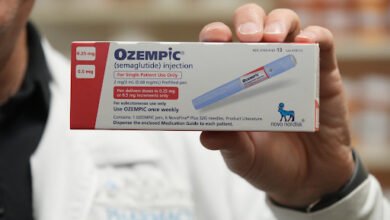Human Papilloma Virus Infection

What is Human Papilloma Virus (HPV) ?
Human Papilloma Virus (HPV) is the name for a group of viruses that affect your skin. HPV enters the body, usually through a break in the skin, and then infects the cells in the layers of the skin. The virus then replicates or multiplies in the body. There are a number of different strains of HPV – most have no symptoms, go away by themselves, and don’t cause any health problems, while other strains can cause cancer. some of which are called “high risk” because they’re linked to the development of cancers, such as cervical cancer, anal cancer, genital cancers, and cancers of the head and neck. This is responsible for a common sexually transmitted infection that shares the same name. Most sexually active people are exposed to it at some point.
What is Human Papilloma Virus infection?
Human Papilloma Virus infection (HPV infection) is an infection caused by Human Papilloma Virus (HPV), About 90% of HPV infections cause no symptoms and resolve spontaneously within two years. They can cause warts on different parts of your body. There are more than 200 types. About 40 of them are spread through direct sexual contact with someone who has the virus. They can also spread through other intimate, skin-to-skin contact. Genital HPV infections are those affecting areas around the vagina, penis, and anus. In a small number of women, certain HPV strains cause changes in the cervix that can become cancerous if not treated. Genital HPV infections can be spread by people with no symptoms, but the risk of infection is particularly high if you have intercourse with someone who has genital warts. Both girls and guys can get HPV from sexual contact, including vaginal, oral, and anal sex.
How HPV Spread?
HPV is spread through:
- Vaginal, oral, or anal sex. Human Papilloma Virus (HPV) can be spread even if there are no symptoms. This means you can get HPV from someone who has no signs or symptoms.
- Studies have shown HPV transmission between hands and genitals of the same person and sexual partners.
- Partridge reports men’s fingertips became positive for high-risk HPV at more than half the rate (26% per 2 years) as their genitals (48%)
- Sharing of possibly contaminated objects, for example, razors, may transmit HPV.
- Genital touching. A man does not need to ejaculate (come) for HPV to spread. HPV can also be passed between women who have sex with women.
- Childbirth from a woman to her baby
What is the expected duration of HPV?
Many warts disappear on their own. This may take one or two years. Others last for longer periods.
What are the signs and symptoms of HPV infection?
Most people infected with Human Papilloma Virus (HPV) do not have any symptoms. When an Human Papilloma Virus (HPV) infection does cause a wart, the appearance varies slightly depending on its location. after that here are the list of most common symptoms of Human Papilloma Virus (HPV) infection-
- Itchiness
- bleeding after sex/pain during sex/Discomfort during intercourse
- abnormal period, vaginal bleeding, or discharge
- pain in the pelvis
- Warts on the penis or vulva, which appear as small cauliflower-like growths
- During pregnancy, warts may increase in size and number and then regress/resolve after delivery
- genital warts (called low-risk HPV) most often appear in the following areas of the body:
- On the vulva (the outer female genital area)
- In or around the vagina
- In or around the anus
- On the groin (where the genital area meets the inner thigh)
- On the cervix
If symptoms persists for long time this may be the indication of cervical cancer and usually, this doesn’t causes any symptoms but Bleeding between periods or after intercourse is the major symptoms of cervical cancer caused by HPV and can confirmed by doctor by after an abnormal Pap test.
What are the types of genital warts caused by HPV?
- Common warts are painless, firm growths with a rough surface and appear on the knees, face, fingers, and around the nails.
- Plantar warts are those appearing on the soles of the feet. They can be painful because of their weight-bearing location on the feet.
- Flat warts are small, smooth warts appearing in clusters on the back of the hands, face, or legs.
- Filiform warts form long, thin projections around the eyes, face, and neck.
- Precancerous lesions or cervical dysplasia are abnormal cells in the cervix. These are painless and can only be detected with a Pap smear.
- Genital warts are small, cauliflower-shaped, or flat lesions. They occur on the genital areas including the vagina, cervix, vulva, penis, scrotum, and anus. They are usually painless but they can bleed, itch, or have some discharge.
How do you protect yourself from HPV?
If you do have sex, lower your risk of getting an STI with the following steps:
- Condoms can help prevent the spread of HPV, but they do not provide full protection.
- The most up-to-date vaccine provides protection against 7 HPV types associated with 90% of cervical cancers.
- Limit the number of sexual partners
- Not have sex while genital warts are present.
- Use a new dental dam or latex gloves for rimming and fingering (exploring your partner’s anus with your fingers, mouth, or tongue) or use latex gloves for fisting.
- Shaving the genital area can promote the spread of genital warts.
- Cover sex toys with a new condom for each partner and wash them after use.
- Remember, the virus is not just passed on through penetrative sex and can be transmitted through any genital skin-to-skin contact.
- Get tested. Be sure you and your partner are tested for STIs. Talk to each other about the test results before you have sex.
- Drinking too much alcohol or using drugs increases risky behavior and may put you at risk of sexual assault and possible exposure to STIs.
The steps work best when used together. No single step can protect you from every single type of STI.
What are the complications HPV infection?
- Oral and upper respiratory lesions. Some Human Papilloma Virus (HPV) infections cause lesions on your tongue, tonsils, soft palate, or within your larynx and nose.
- Certain strains of Human Papilloma Virus (HPV) can cause cervical cancer. These strains might also contribute to cancers of the genitals, anus, mouth, and upper respiratory tract.
- Oral cancer— Symptoms may include a tongue or mouth sore that doesn’t heal and/or a persistent discolored area in the mouth.
- Anal cancer— Symptoms may include bleeding, itching, and/or pain around the anus.
What is the Human Papilloma Virus (HPV) vaccine?
The Human Papilloma Virus (HPV) vaccine helps prevent cervical cancer, genital warts, and some other rare cancers. The Human Papilloma Virus (HPV) vaccine works best if girls and boys get it before they come into contact with HPV (in other words, before they become sexually active). Vaccines can protect against several types of Human Papilloma Virus (HPV), including some that can cause cancer. HPV vaccination is recommended at age 11 or 12 years (or can start at age 9 years) and for everyone through age 26 years, if not vaccinated already.
Three HPV vaccines(Gardasil, Cervarix, Gardasil 9) have been approved by the Food and Drug Administration. The most recent was Gardasil 9, which is approved for use in males and females ages 9 to 45 to protect against cervical cancer and genital warts. Studies have shown that the vaccine protects against HPV infection for at least 10 years, although experts expect protection to last for much longer.
Who is at risk?
Anyone who is not vaccinated and is sexually active is at risk of getting Human Papilloma Virus (HPV).
Can I be treated for HPV or health problems caused by HPV?
There is no treatment for the virus itself. People with conditions affecting their immune system, including HIV, cancer, on immune suppressant medication for organ transplantation, and auto-immune conditions (such as systemic lupus erythematosis) need more frequent screening for HPV. There are treatments for genital warts and cell changes caused by the virus, but these do not cure the virus itself. Once you have an HPV infection, the immune system will most often clear the virus, in most people, within one to two years. HPV infections can reoccur in the future.



